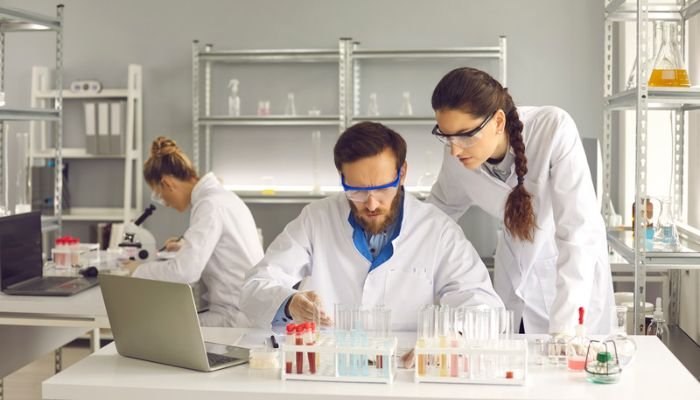3D printing, also known as additive manufacturing, has revolutionized various industries, including healthcare and pharmaceuticals. This innovative technology has the potential to transform drug development, production, and personalized medicine. For B.Pharm graduates, 3D printing in pharmaceuticals presents both exciting opportunities and significant challenges. This article explores how 3D printing is impacting the pharmaceutical industry and what it means for pharmacy graduates entering the field.
Understanding 3D Printing in Pharmaceuticals

3D printing in pharmaceuticals involves creating three-dimensional objects layer by layer from digital models. This technology can be used to manufacture complex drug formulations, customized dosage forms, and even drug delivery systems. The flexibility and precision of 3D printing allow for unprecedented control over drug design and production.
Key applications of 3D printing in pharmaceuticals include:
- Personalized Medicine: Customizing medications to meet individual patient needs.
- Complex Drug Formulations: Creating drugs with precise release profiles and multi-drug combinations.
- Innovative Drug Delivery Systems: Developing novel delivery methods such as implants and patches.
Opportunities for B.Pharm Graduates

1. Research and Development:
- Innovative Drug Formulations: B.Pharm graduates can work on developing new drug formulations that take advantage of 3D printing technology. This includes creating medications with tailored release profiles and combination therapies.
- Personalized Medicine: The ability to customize drugs for individual patients opens up new avenues for research in personalized medicine. Graduates can be involved in designing and testing patient-specific medications.
2. Manufacturing:
- Efficient Production: 3D printing in pharmaceuticals allows for the on-demand production of medications, reducing waste and inventory costs. B.Pharm graduates can work in manufacturing settings, overseeing the production process and ensuring quality control.
- Small Batch Production: For rare diseases or personalized therapies, 3D printing enables the efficient production of small batches of drugs. Graduates can specialize in the production of niche medications that are not feasible with traditional manufacturing methods.
3. Regulatory Affairs:
- Navigating Regulations: As 3D printing in pharmaceuticals is a relatively new field, there are evolving regulatory landscapes. B.Pharm graduates with knowledge of regulatory affairs can help navigate these regulations to ensure compliance and facilitate the approval of 3D printed drugs.
- Quality Assurance: Ensuring the quality and safety of 3D printed medications is crucial. Graduates can work in quality assurance roles, developing and implementing standards for 3D printed pharmaceuticals.
4. Clinical Applications:
- Customized Drug Delivery: Pharmacists can use 3D printing to create customized drug delivery systems for individual patients. This can improve patient adherence and outcomes by tailoring drug administration to specific needs.
- Patient Counseling: B.Pharm graduates can educate patients and healthcare providers about the benefits and use of 3D printed medications, enhancing patient care and awareness.
Challenges for B.Pharm Graduates

1. Technological Expertise:
- Learning Curve: 3D printing technology requires a new set of skills and knowledge. B.Pharm graduates must be willing to learn and adapt to new tools and processes associated with 3D printing.
- Interdisciplinary Knowledge: Successful application of 3D printing in pharmaceuticals often requires collaboration with engineers, material scientists, and IT professionals. Graduates need to develop interdisciplinary knowledge and teamwork skills.
2. Regulatory and Compliance Issues:
- Evolving Regulations: The regulatory environment for 3D printed drugs is still developing. B.Pharm graduates must stay updated on changing regulations and ensure that their work complies with new standards.
- Quality Control: Ensuring the consistency and quality of 3D printed medications can be challenging. Graduates must implement rigorous quality control measures to meet regulatory requirements and maintain patient safety.
3. Cost and Accessibility:
- High Initial Costs: The initial investment in 3D printing technology can be high. This includes the cost of equipment, materials, and training. B.Pharm graduates working in smaller or resource-limited settings may face challenges in adopting this technology.
- Access to Technology: Access to advanced 3D printing equipment and materials may be limited in some regions or institutions, posing a barrier to widespread adoption.
4. Ethical and Legal Considerations:
- Intellectual Property: The ability to print complex drug formulations raises questions about intellectual property and patent laws. B.Pharm graduates must navigate these legal challenges to protect innovations and comply with legal standards.
- Ethical Concerns: The customization of medications must be done ethically, ensuring that all patients have equitable access to these advancements. Graduates must consider the ethical implications of personalized medicine and strive for inclusivity.
Preparing for the Future
To leverage the opportunities and overcome the challenges associated with 3D printing in pharmaceuticals, B.Pharm graduates should focus on the following areas:
1. Education and Training:
- Pursue additional training in 3D printing technology, either through specialized courses or advanced degrees.
- Stay updated on the latest advancements in 3D printing and its applications in pharmaceuticals through continuous education and professional development.
2. Interdisciplinary Collaboration:
- Work with professionals from other fields, such as engineering and material science, to gain a comprehensive understanding of 3D printing technology.
- Participate in interdisciplinary research projects to develop innovative drug formulations and delivery systems.
3. Regulatory Knowledge:
- Stay informed about the evolving regulatory landscape for 3D printed pharmaceuticals.
- Engage with regulatory bodies and industry groups to contribute to the development of standards and guidelines for 3D printing in pharmacy.
4. Ethical Awareness:
- Consider the ethical implications of 3D printing in pharmaceuticals and strive for equitable access to personalized medications.
- Advocate for policies and practices that ensure all patients benefit from advancements in 3D printing technology.
Conclusion
3D printing in pharmaceuticals offers exciting opportunities for B.Pharm graduates to innovate and improve patient care. While the technology presents several challenges, including technological expertise, regulatory compliance, and ethical considerations, the potential benefits are substantial. By embracing interdisciplinary collaboration, staying informed about regulatory changes, and continuously educating themselves, B.Pharm graduates can play a pivotal role in the future of pharmaceuticals, leveraging 3D printing to enhance drug development, manufacturing, and personalized medicine.








